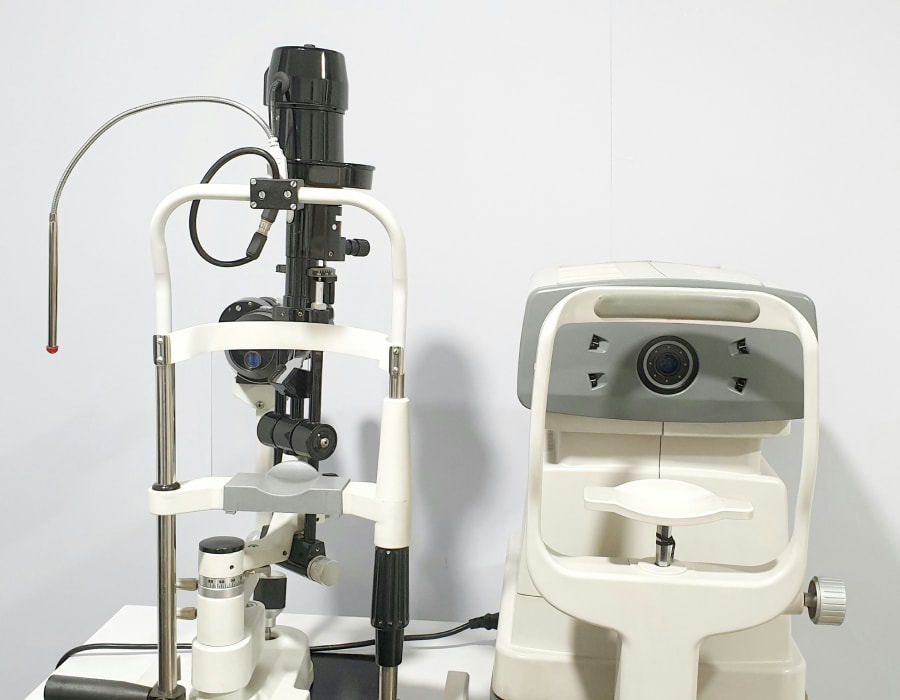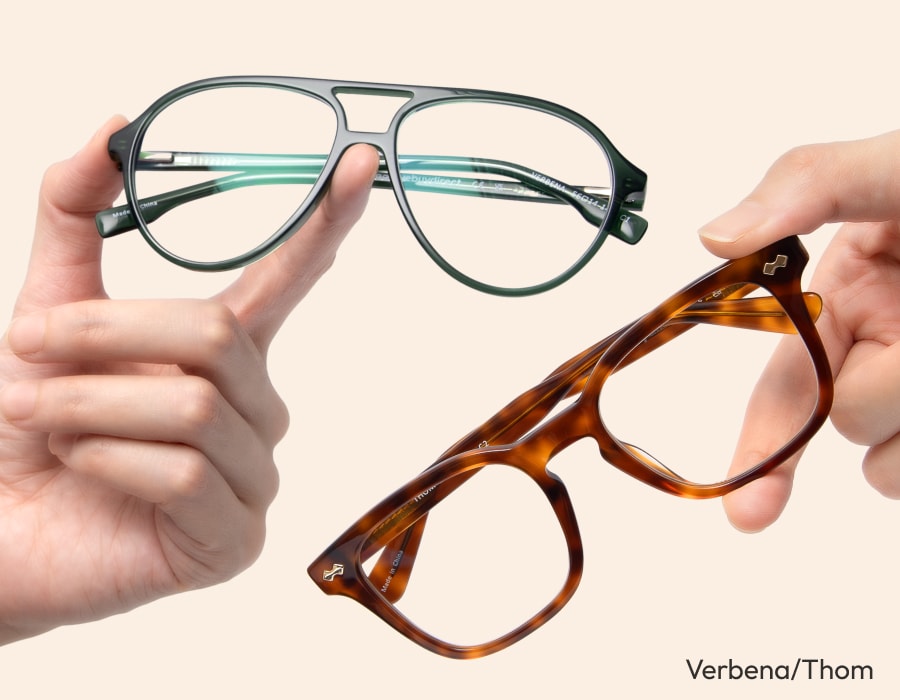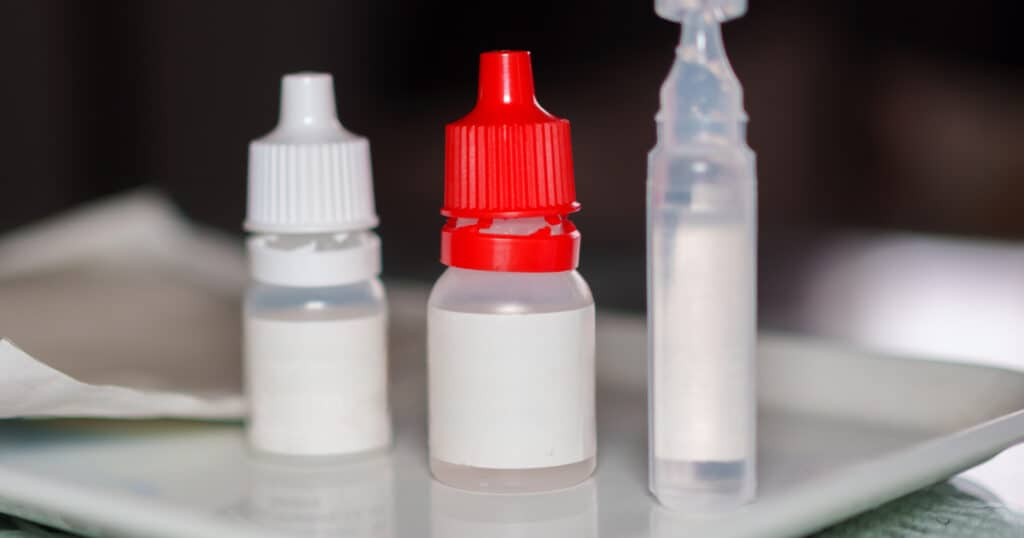Taking care of yourself goes a long way toward determining the length and quality of your life. And sure, eating right and staying active do wonders for your body, but what about your eyes?
Maintaining clear vision and healthy eyes will make a big difference in your daily life. Read on to learn whether eyesight can improve naturally and what you can do to support your eye health over time.
Can Eyesight Improve?
Yes, in some cases, eyesight can get better naturally.
For example, many young children have farsightedness (hyperopia) that can make their close-up vision blurry. This occurs when their eyeballs are shorter from front to back than average. As these children grow, it’s common for the length of their eyeballs to also grow, causing their farsightedness to improve or resolve on its own.
Eyesight can also improve with the help of prescription glasses and contact lenses. Both options provide temporary improvement by correcting different vision problems. Refractive surgery like LASIK can provide more long-term improvement, but people over 40 may still find they need reading glasses for close-up tasks.
Natural Ways to Help Improve Vision and Eye Health
If you want to go beyond glasses to support your eye health, there are several simple things you can do. Here are some tips:
- Spend time outdoors – Research shows that spending at least 2 hours outdoors every day can lower a child’s risk of myopia development and progression.
- Don’t smoke – Smoking raises your risk of developing cataracts, macular degeneration, and other serious conditions that affect your eyes. Damage from smoking can affect your entire body.
- Practice the 20-20-20 rule – If you use a computer or look at screens a lot, try the 20-20-20 rule. Every 20 minutes, look at something 20 feet away for at least 20 seconds. This helps reduce eye strain and dry eyes by giving your eyes regular breaks.
- Exercise regularly – Studies suggest that regular exercise can help prevent eye diseases like glaucoma, macular degeneration, and diabetic retinopathy.
- Get enough sleep – Some studies suggest a significant link between sleep habits and eye health. A good night’s rest can promote better tear production, relaxation and recovery of eye muscles, and other benefits.
- Protect your eyes – Protective eyewear can shield your eyes from injury during potentially dangerous activities. This includes wearing sunglasses with 100% UVA-UVB lens protection (UV 400) when spending time outdoors.
- Limit screen time – Users blink only a third of their normal rate when staring at a screen, which can fatigue the eyes’ focusing muscles and prevent adequate lubrication. Taking frequent breaks from screens can reduce symptoms of dry eyes, eye strain, and other screen-related issues.
- Stay hydrated – Dehydration can lead to eye dryness, dark under-eye circles, and blurry or double vision. Drinking plenty of water can help you hydrate and improve your eye health.
Some people and programs encourage eye exercises, or “eye yoga,” to improve eyesight. However, there is no science to support its effectiveness in preventing, treating, or correcting vision problems.
Vitamins and Other Foods for Better Eyesight
Eating a balanced diet with certain vitamins can help enhance your eye health. Here are some eye-approved nutrients to shop for on your next grocery run:
- Vitamin A – This vitamin is essential for healthy corneas and the ability to see in low-light environments. Carrots, sweet potatoes, and spinach are rich in vitamin A.
- Vitamin C – This powerful antioxidant protects your eyes from damage and research has shown it can help lower your risk of cataracts. You can get lots of vitamin C from oranges, strawberries, and bell peppers.
- Vitamin E – Another important antioxidant, vitamin E may help slow the progression of some age-related eye problems or even help prevent their development. Foods like nuts, seeds, and green leafy vegetables are packed with vitamin E.
- Thiamine (vitamin B1) – In addition to helping ward off cataract development, thiamine nourishes the cornea to help relieve eye pain and dryness. Black beans, eggs, kale, and whole grains are rich in thiamine.
- Riboflavin (vitamin B2) – Providing more antioxidant magic, this vitamin has been shown to reduce one’s risk of developing cataracts. Riboflavin-rich foods include nuts, red meat, and mushrooms.
- Niacin (vitamin B3) – This vitamin helps convert what you eat into energy, and it may help lower your glaucoma risk. Red meat, legumes, and bananas are good sources of niacin.
- Other B vitamins – Vitamins B6 (pyridoxine), B9 (folate or folic acid), and B12 (cobalamin) help reduce the production of an inflammatory protein called homocysteine. Foods that contain these B vitamins include whole grains, citrus fruits, eggs, and avocados.
- Omega-3 fatty acids – These healthy fats are considered great for your eyes. They may help protect against dry eyes and may also lower your risk of developing macular degeneration. You can find omega-3s in walnuts and fatty fish like salmon.
- Zinc – This mineral helps keep your retinas healthy, which may also help you see better at night. Good sources of zinc include meat, shellfish, and legumes like beans and lentils.
- Lutein and zeaxanthin – These antioxidants can help protect the retina from oxidative damage, as well as prevent cataract development and AMD progression. You can find healthy levels of lutein and zeaxanthin in leafy greens, Brussels sprouts, and green peas.
Before adding new foods and vitamins to your diet, talk to your doctor to find out how they may be able to support your eye health. They can also help you set reasonable expectations in regard to any benefits the supplements may provide.
Eye Exams to Prevent Vision Loss and Maintain Eye Health
Eye exams are super important if you want to keep your eyes healthy. Even if you think your vision is fine, regular check-ups with an eye doctor can catch problems before they progress.
When you go for an eye exam, your doctor will conduct a series of tests to assess your eye health and visual acuity (how sharp your vision is). The acuity tests will ultimately determine your vision prescription.
Your eye doctor will use special instruments to check the health of your eyes, examining both the ocular surface and the structures inside your eyes. They look for signs of glaucoma, cataracts, macular degeneration, and other conditions, because the sooner they can catch these issues, the better the prognosis. Early detection, intervention, and treatment are some of the best ways to help stop or slow a condition’s progression.
For example, if the doctor determines you have glaucoma, they can start treatment to help keep it under control. Similarly, if they find signs of cataract(s), they can track them to see if (and when) surgery may be necessary. Your eye doctor may recommend more frequent eye exams (or in-home vision checks) to more closely monitor your eye health and check for potential disease progression.
Can Eye Doctors Detect Other Medical Problems?
The earliest signs of some medical conditions may appear first in the eyes. This means that, during an eye exam, an eye doctor may be first to discover a patient’s increased risk for or initial development of a systemic condition, such as:
- High blood pressure
- Diabetes
- High cholesterol
- Multiple sclerosis
- Thyroid disease
The earlier your eye doctor notices any signs of disease (ocular or systemic), the sooner you can take action to help prevent further damage.

When to See an Eye Doctor
The best way to improve your eye health and maintain sharp vision is with regular eye exams. Your eye doctor can also suggest ways to naturally improve your eyesight and track the progress your healthy habits have on your vision.
Most people should get their eyes checked every one to two years. However, if you already wear glasses or have a family history of eye problems, you might need to go more often. Your eye doctor will let you know how frequently to schedule your appointments based on your individual needs.









